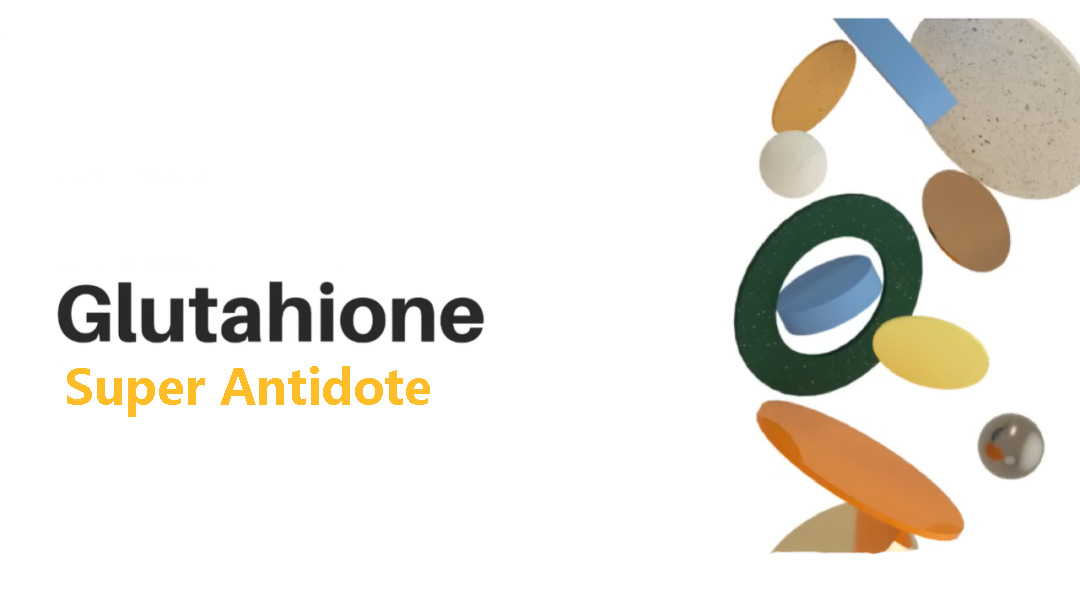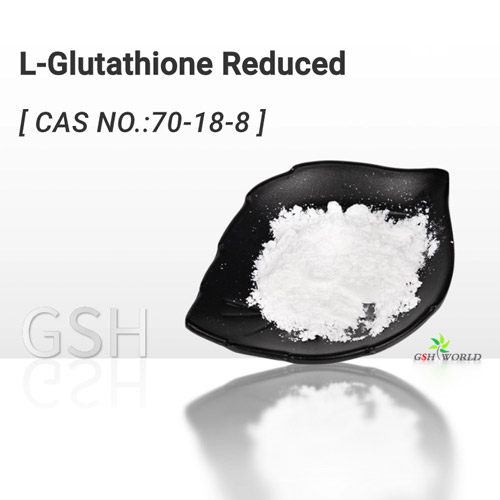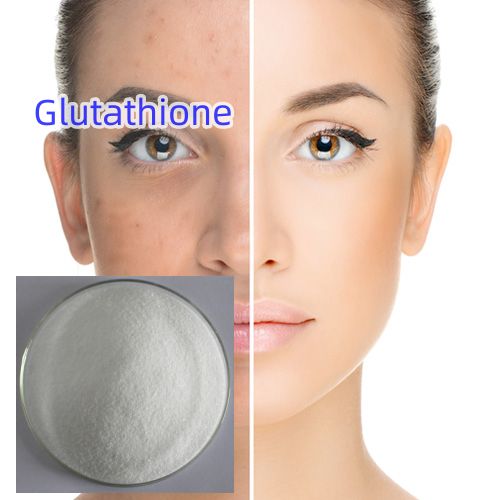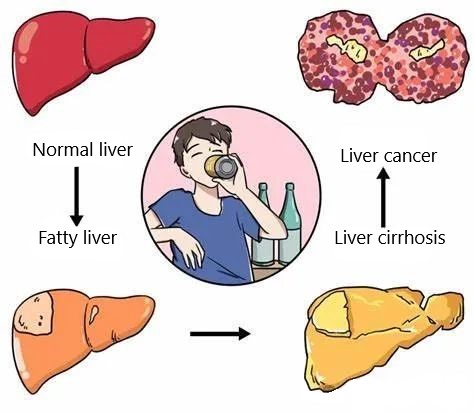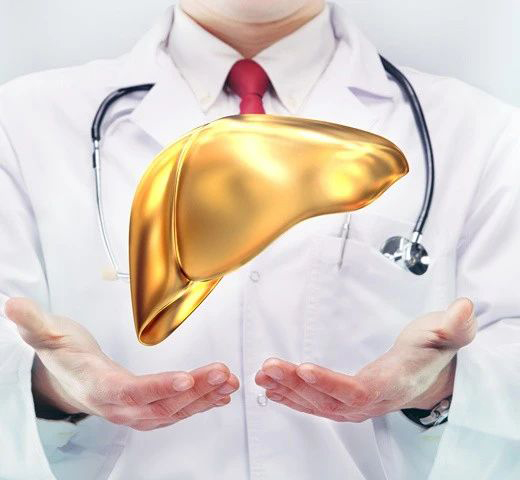What is glutathione?
Glutathione is a small protein composed of three amino acids (glutathiamine, cysteamine and glycine).
What does glutathione do?
Glutathione may help protect our cells from damage as well as help remove harmful compounds.
Over the course of 100 years of research, more than 100,000 scientific papers have confirmed that maintaining glutathione levels in cells is one of the most important factors in maintaining normal cell function, immune health and slowing the aging process.

5 benefits of glutathione
It is an antioxidant
Glutathione is the main antioxidant in cells and protects them from damage.
It is also extremely important for the recycling and proper use of other antioxidants, such as vitamins C and E.
It has an effect on the immune system
Glutathione not only protects immune cells from damage, but also has some direct effects against viruses.
It also plays an important role in regulating the balance of the immune system. When the immune system is underactive, it can boost its function;
And when the immune system is overactive, it can help restore balance.
This is essential for cell function
Glutathione is essential for the production of many cellular proteins, the synthesis and repair of DNA, the initiation and regulation of cellular enzymes involved in the overall function of cells, and the proper action of vitamin D3.
It is a detoxifying compound
Glutathione may help keep the body clear. Glutathione binds poorly to toxins, pollutants, chemicals, heavy metals and drug metabolites, excreting them in the urine or intestines.
Aging and exposure to toxins, drugs, environmental pollutants, and any other compounds that cause oxidative damage can decrease glutathione levels.
Even something as common as taking acetaminophen, such as Tylenol, can cause glutathione levels to plumb.
Low levels of GSH are associated with accelerated aging and almost all chronic diseases, especially those associated with aging, such as cognitive decline, type 2 carbohydrate-metabolic disease, and multiple chronic diseases.
It is well known that old age is a risk factor for serious illness, complications and multiple fatal causes, including viral infections.
Low levels of glutathione make cells more vulnerable to oxidative damage. Too little GSH can also damage the immune system and the protective barriers of the airways and intestines.
The same damage is also seen in the following diseases:
Chronic kidney disease
- COPD (Chronic Obstructive Pulmonary Disease)
- Immunocompromised state of solid organ transplantation (weakened immune system)
- Obesity (body mass index [BMI] of 30 or higher)
- Serious heart disease, such as heart failure, coronary artery disease, or cardiomyopathy
- Sickle cell anemia
Type 2 glycometabolic disease
What role does glutathione play in immune function?
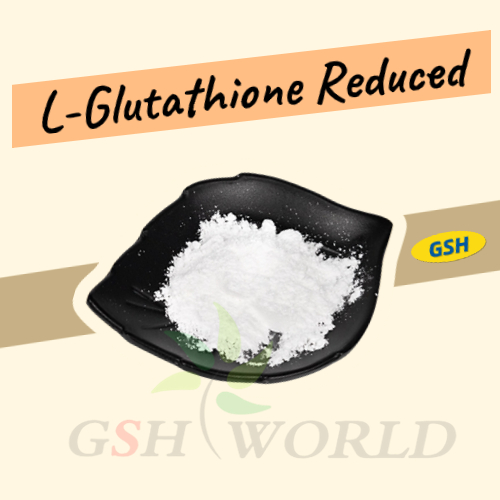
During this period of increased emphasis on immune health, it is necessary to understand the importance of GSH in preventing infection.
One study clearly showed that higher levels of GSH in cells are associated with a person’s appropriate response to viral infection.
3. This is because GSH protects immune cells from damage and strengthens immune function, which is essential for defense against viruses.
4. Studies have also shown that GSH acts directly at different stages of the viral life cycle, preventing viral replication.
5. These virus-fighting properties of GSH thought to help prevent an increase in viral load, thereby preventing the subsequent mass release of inflamed cells into the lungs (seen in some viral diseases).
6. What dietary factors and supplements can increase glutathione?
Diet can help increase glutathione levels, but only to a limited extent.
The human body (mainly the liver) produces about 8,000 to 10,000 mg of glutathione per day. A healthy diet rich in fresh fruits and vegetables provides about 150 mg of formed GSH per day.
Nevertheless, since glutathione extremely needed by cells, increasing the amount of GSH taken from the diet is undoubtedly an important goal.
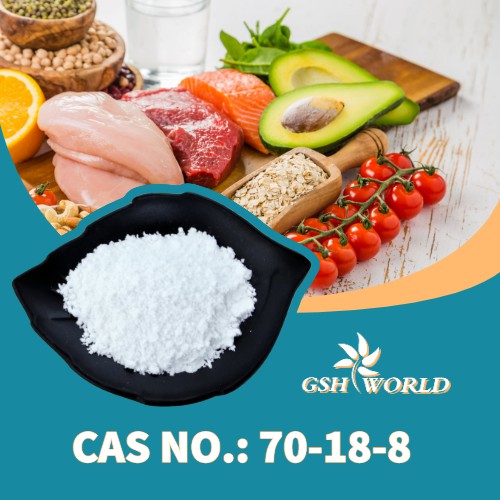
Asparagus, avocados and walnuts are all foods that are particularly rich in glutathione.
Popular supplements to boost GSH include taking glutathione or N-acetyl-l-cysteine.
Prior to recent studies, the use of glutathione as a dietary supplement somewhat controversial because it believed that oral GSH might not absorbed.
An early study is often cited as proof that GSH is difficult to absorb.
In this study, a single dose of 3,000 mg of glutathione failed to increase the amount of GSH in the blood. But there’s another reason.
7. Researchers have been measuring free GSH, and because glutathione is so valuable that it quickly binds to proteins for delivery to cells,
8. Therefore, it does not show up as free GSH in the blood.
Can oral glutathione supplements be absorbed?
The first study to show that oral glutathione can significantly absorbed by people with low levels of GSH conducted at Kyoto University in 2014.
9. This study was different in that it measured not only unbound free glutathione in the blood, but also GSH that bound to proteins.
The results showed that while there was no significant difference in free glutathione content after glutathione supplementation, there was a significant increase in protein-bound GSH content.
This study is groundbreaking because it illustrates the inadequacies of previous studies on absorption.
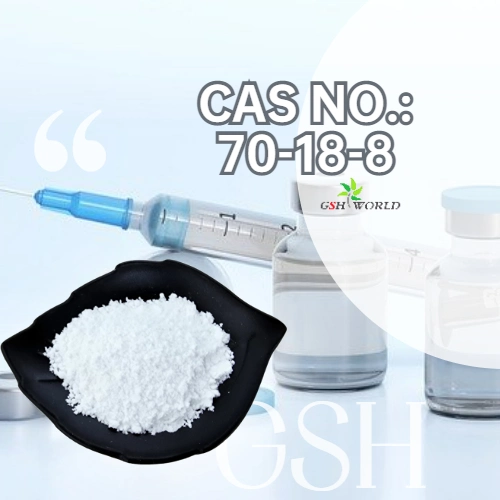
The next study, conducted in 2015 at Penn State University, again clearly showed that oral glutathione could absorbed, increasing GSH concentration in tissues.
10. Fifty-four healthy adult non-smokers randomly assigned to take either placebo or oral GSH at doses of 250 mg or 1,000 mg per day for six months.
The results showed that glutathione levels in the blood and red blood cells of subjects with both doses were significantly higher than baseline at 3 and 6 months.
After six months, those who took 250 mg of GSH daily had 17% more GSH in their blood and 29% more GSH in their red blood cells.
People who took 1000 mg of glutathione per day had a 31% increase in GSH in the blood and a 35% increase in GSH in red blood cells.
Even more striking, those who took 1,000 mg of glutathione per day increased glutathione levels in the inner jaw cells by 250 percent.
A 2018 study in animals showed that GSH absorbed directly in the gut, then bound to proteins, transported in the blood, and then transported to the liver, where it used for cell protection and detoxification.
What is NAC? How does it strengthen glutathione?
N-acetyl-l-cysteine (NAC) is a form of cysteine; Cysteine is the key amino acid of GSH.
Taking NAC as a dietary supplement can increase GSH content in tissues. Supplementation with NAC increases glutathione levels and is particularly helpful in protecting the lungs, respiratory tract, and stomach.
14-17 NAC is also one of the ways to treat paracetamol poisoning. Para-acetaminophen metabolized into toxic compounds that can damage the liver by causing a loss of its GSH reserves.
When ingested in excess of acetaminophen or with alcohol, the loss of GSH from acetaminophen can be fatal.
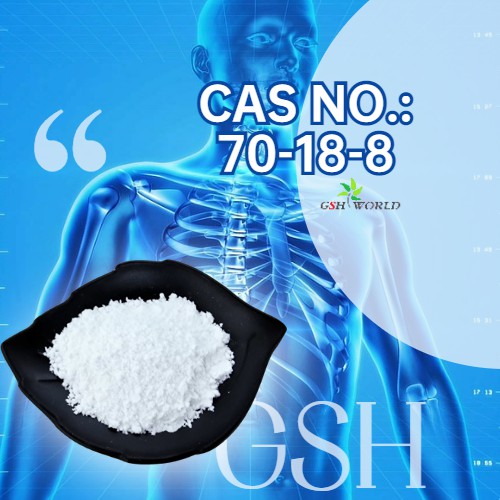
NAC is also a slime modifier.
NAC is administered orally and through a breathing tube in the hospital to help patients with acute and chronic lung diseases (such as pneumopneumatosis, bronchitis,
chronic bronchial chronic airway inflammation and cystic fibrosis) cope with mucus problems, both of which have good results.
NAC can help reduce the viscosity of bronchial secretions.
NAC also found to optimize the ability of respiratory cilia to remove mucus, increasing the removal rate by 35%.
These effects of NAC optimize bronchial and lung function,
reduce cough, and optimize oxygen saturation in the blood when the respiratory tract is faulty.
To protect and strengthen the glutathione content of the lungs, it is necessary to reduce the thickness of the mucus.
Which is better? Glutathione or NAC?
In answering this question, it is important to understand that both have shown clinical benefits, and that choosing one over the other is like parting your hair.
The advantage of glutathione is that it is an already formed active compound.
The advantage of NAC is that it may be a better option when the mucus in the respiratory tract is thick and dissolves the mucus more effectively.
This is all for today’s sharing. Find your doctor and dietitian if you have any questions. This content is not for medical treatment.

